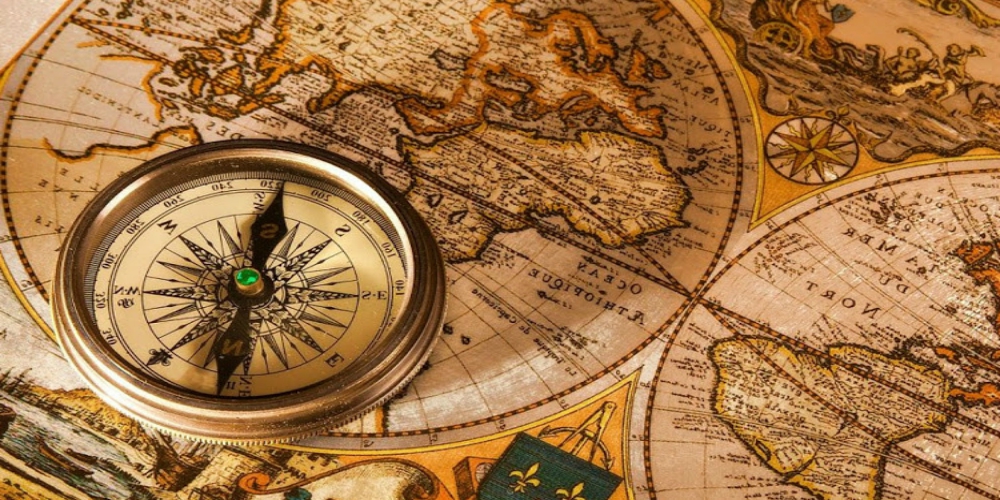La human geography It counts as a discipline that has as its foundation the study of society as well as the environment on which they dwell. In this article, various points will be offered about its most outstanding characteristics, the branches of study, theoretical approaches and much more.

What is human geography?
The term human geography consists of a doctrine whose main objective is the study of societies, which include humanity in general. Its principles are based on the understanding of the media that have a cultural and regional focus.
Under these assumptions, human geography is usually considered as such, through the geographical idea based on regional terms according to the human society being studied. Some of the objectives carried out in the analysis include:
- The study of human activities
- The culture
- The science
- The distribution of the population
- The economic, political and social terms
These variables contribute to the answers that are sought to know about the problems that certain societies present, taking into account that globalization has brought great changes that usually affect a certain percentage of the population. It is important to highlight that many of the problems present in populations today are linked to socioeconomic problems as well as other decisive factors.
One of the main factors that characterize human geography is the grouping of masses, that is, the quantities of people that are grouped on a large scale worldwide. What brings with it a great process that translates into the structure of society, which moves according to the interests that are generated according to the needs that they possess.
The economic, political, social and cultural field plays a fundamental role within societies, not only in modern times, since since ancient times societies change and transform according to the evolution and direct influence of any of the aspects mentioned above. The investigation of geographic processes has a great breadth according to the superstructure that makes up society, this is the main focus of study that this practice intends to know.
history of human geography
It was born and developed specifically in the XNUMXth century. By then some departmental geography offices were beginning to be created in some institutes of higher education, trying to reach the classroom through chairs that would carry out the formal study of geography, endowed with its own methodological and theoretical field.
Its main objective was to spread the knowledge of geography, since at that time exploration trips were beginning with which the knowledge of some medium-scale areas was achieved. Thanks to the extension of the empire and other factors involved in this issue, the importance and recognition of geography as a discipline was affected and in turn disqualified during the course of that time.
However, some studies based on regional geography were consolidated, which despite being different from the object of study of human geography, both remained connected during the boom of the main years in which both disciplines were deployed.
This discipline that goes hand in hand with regional geography was implemented by some geographers who sought to identify the areas provided with regions, generating some characteristics that accompanied it for the full knowledge and classification of said areas.
Characters like Richard Hartshorne took as a premise the importance of the study of regional geography as well as its development, through this it is possible to establish geography as a discipline that was provided for its study and progressive investigation.
From this, it is possible to strengthen the method for the stabilization of some aspects that referred to humanity, accompanied by physical and geographical aspects. For this reason, it is recognized that regional geography laid the foundations to carry out the beginning of the theory of human geography, this specifically in the European continent.
currents
Other currents that contributed in their time to the study of human geography was geographic determinism. This is based on knowledge of the environment, since this variable was recognized thanks to the different activities that were carried out in the small regions, which gave it a certain importance in the economic and industrial sphere.
With great influence on the approaches of Charles Darwin, thanks to his theory of evolution, society established its opinion on said theory, coming to interpret that the context or physical environment plays a fundamental role not only in some activities that man performs, but also in the nature of individuals.
The theoretical foundations of regional geography were established on the European continent, with Paúl Vidal becoming one of its main exponents. This character developed and broke down his theory very well, even rejecting the proposals of the deterministic theory, alleging that the physical environment is part of human activity, but does not determine it in a broad sense, however he admits that both factors influence each other. direct way.
At that time, a debate between both theoretical positions originates, a fact that managed to contribute with the main basis for the emergence of human geography in the midst of the development of the XNUMXth century. However, deterministic arguments had been in decline for some time, so his theory was promptly displaced.
After the development of the XNUMXth century, geography is generated with systematic approaches, this is due to the investigations that were carried out independently of the regional character that had been developing in the past years.
With this, the human geography begins to take a boom as a field of interest for many scholars. This independence brought with it the development of new disciplines, which began to carry out their own theories and logical approaches. Among them we find the following:
- Economic geography
- social geography
- Political geography
These branches of studies gradually gained great importance worldwide, thanks to the independence they managed to execute effectively. Today they are recognized taking into account the levels they perform in terms of the study theories they carry out, thanks to modernization.
progress of human geography
While the interdisciplinary divisions of the aforementioned theories were carried out, each of them achieved the specialization of its theoretical content. For example, economic geography specialized in several areas, achieving the development of industrial geography and in turn the knowledge of agrarian geography. However, the human geography managed to remain under its natural essence.
By the year 1950, the stabilization of the discipline was quite affected, thanks to the strong criticism implemented by some institutions. Which impacted the illustrious reputation that little by little it had managed to forge, coming to question the certainty of its approaches that were based on scientific theories.
At the same time, the regional geography was bombarded with negative comments that questioned the origin of the study it carried out. This due to the emphasis of the investigations that he carried out on the regions, for which the progress that he obtained through the generation or development of the new geographical sciences was not taken into account.
Each and every one of the sciences that were developed sought to generate quality approaches, through research based on very specific methodologies, however the efforts were in vain, since these did not achieve the acceptance of the social sciences that were still active at that time. Among them we can mention the economic and psychological sciences.
It was presumed that human geography did not have the power to achieve progress, this through the lack of deepening of theoretical content that was based on verifiable scientific approaches. However, thanks to the strong criticism to which it was subjected, the efforts were greater.
Through past events that were not entirely positive, human geography reinvents itself by renewing its analytical structure. This raises it to a new level of recognition, taking into account that little by little it managed to become a methodological science that develops a very important and authentic method.
Features
The main characteristic that economic geography carried out was firstly betting on positivism approaches, this is identified as a current endowed with philosophy that manages to link the scientific method with the bases of knowledge, it is formed by the empirical method and its verifiable time.
The methodology that he implements, arises thanks to other disciplines, was fixed on some analytical models and in turn endowed with the statistical method, which allowed him to completely verify and verify the development of his theory through numerical data that managed to verify the assumptions that the investigations will throw.
Another characteristic present in human geography was the idea of location. This is achieved through the effects produced with regard to places and the relationships established between humanity and these geographical spaces. For this reason, this objective leads the discipline to be recognized under the importance of a spatial study.
Thanks to how important the methodological discipline became, many of the changes that were made not only in this area, but also in other disciplines that led to the emergence of their approaches, this fact is recognized as a quantitative revolution.
News
The evolution of human geography was quite progressive until the year XNUMX, which had great theoretical objectives that gradually, over the years, improved and updated each of the methodologies used for the acceptance of the discipline as a science.
However, human geography did not eradicate the various approaches that it generated, on the contrary, it was based on the realization of some opposing themes, which manifested themselves in different ways with each other, under some philosophical theories, this in order to not replace them at all. This produced a separate growth of each discipline, each one managing to feed on specific theories.
In these current times, the highest percentage of professionals in the field, such as geographers, are identified by the specialties they perform, such as those who are dedicated to economic geography, social or urban geography.
One of the main aspects that we can highlight in this profession is humanistic geography. Which has its starting point under the approaches that seek to generate the study on the observation of spaces. This branch of geography tries to search from a humanistic perspective the feeling of humanity taking into account geography as a starting point.
Many of the professionals who dedicate themselves to philosophical work in this area of geography forcefully reject the objective sense of carrying out the theories that are carried out. In a broad sense, these idealize a judgment that is closely related to the feelings that under their assumptions are closely related to a place. Therefore subjective study is the main focus of humanistic geography.
It should be clear that the study of human geography is not centered on geographic space as such, this is what we refer to as physical space. Since the term human geography is not generally mentioned or recognized much, we tend to associate the geography that carries out the study of maps or Mapping with this subject of human geography.
Although it is true that the geographical space has a fundamental role in the study of human geography, this is not precisely the basis of the methodology that it carries out. The importance and level of relevance that this has forged over time is becoming much more notable and characteristic. Taking into account the boom that it obtained as it achieved the specialization of its themes or objectives to pursue.
Field of study
As we have mentioned before, in the beginning, human geography arose from the study of regional geography. However, as a result of the emergence of the theoretical independence that it developed, other fields of study were generated over the years, which have some relationship with human geography, among them we find the following:
population geography
This geography class focuses on the study of patterns on which population is distributed on earth. This thanks to the different historical causes that have developed, and that manage to modify the distribution of human beings on the planet.
Economic geography
This is one of the geographies that is currently present in many of the chairs at the higher university level of a large number of careers. Taking into account that their approaches are based on the study of economic level processes. At the same time, it studies the consequences and influences of the economy on certain nations or countries, which directly affects humanity. It has a balance between the study of economic processes and in turn the geographical distribution.
cultural geography
He focuses his study on the approaches of societies and their close relationship with some spaces, as well as seeking to study the causes of Environmental deterioration. It arises in the XIX century thanks to Vidal Blache. However, it has gained importance over the years. Some of his achievements are based on the creation of schools that carry out in-depth studies on this subject.
urban geography
This represents one of the topics that currently has given much to talk about. His study is based on the overpopulation that is usually concentrated in the center of the countries in search of a better quality of life. This type of geography usually studies the Characteristics of the urban population.
Rural geography
It is based on the comprehensive study of rural geography. Its main objective is to explain the economic processes linked to agriculture, and in turn the production of different resources.
His study also covers the levels of tourism that it carries out, and the causes of the negative impacts that contribute to the abandonment of said areas by the population that seeks to move to urban areas.
Political geography
It has to do with the study of the sciences that are based on the knowledge of the political and social processes that are reflected in modern society. An example of this is political science, which is responsible for processing the study of institutional mechanisms on a global scale, in turn understanding the political system that encompasses a whole.
medical geography
It is characterized by the study of the result exerted by the environment on the health of the population. It takes into account the distribution of some diseases spread over geographical areas.
These represent some of the branches of geography that developed as the years went by in contrast to the evolution of each and every branch of human geography.






